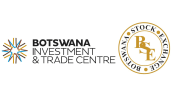Exploring the Global Capital Market Landscape
The global capital market is a vast and complex entity. It’s a network where buyers and sellers engage in trade.

This market plays a crucial role in the world economy. It facilitates the movement of wealth and spurs economic growth.
But what exactly is the capital market? How does it function? And why is it so important?
In this article, we will explore the landscape of the global capital market. We aim to provide a comprehensive overview that is accessible to all.
Whether you’re an investor, a financial professional, or simply curious, this guide will offer valuable insights. Let’s delve into the world of capital markets.
Understanding Capital Markets
Capital markets are venues where savings and investments are channeled. They connect entities that need funds with those who have surplus funds.
These markets are divided into two main segments. The primary market and the secondary market.
In the primary market, new securities are issued. Companies, governments, and other entities raise funds here. They do this by selling securities like stocks and bonds to investors.
The secondary market is where investors trade these securities. This trading happens after the securities have been issued in the primary market.
Understanding these markets is key to grasping the global capital market landscape. They form the backbone of the financial system, driving economic growth and wealth distribution.
The Structure of Global Capital Markets
The global capital market is a vast network. It spans across countries and continents. It includes a wide range of participants and instruments.
The structure of these markets is complex. It comprises of equity markets and bond markets. These are the two main types of capital markets.
- Equity markets deal with stocks and shares.
- Bond markets handle debt instruments.
Equity Markets: The Role of Stocks
Equity markets, also known as stock markets, are vital. They allow companies to raise capital by issuing shares.
Investors buy these shares. They become part-owners of the company. This gives them a claim on the company’s future profits.
The performance of equity markets often reflects the health of the economy. They are a key component of the global capital market structure.
Bond Markets: Understanding Debt Instruments
Bond markets, on the other hand, deal with debt. Governments and companies issue bonds to raise funds.
When investors buy bonds, they are lending money to the issuer. In return, they receive periodic interest payments. They also get the principal amount back at maturity.
Bond markets play a crucial role in the global capital market. They provide a stable source of funds for long-term projects.
The Significance of Capital Markets in the Global Economy
Capital markets are the lifeblood of the global economy. They channel savings and investments between suppliers and users of capital. This promotes economic growth.
They also provide a market for governments and companies to raise funds. This is crucial for infrastructure development and business expansion.
Moreover, capital markets offer investors a platform to invest their surplus funds. This can generate returns and contribute to wealth creation.
Economic Growth and Capital Markets
Capital markets play a pivotal role in stimulating economic growth. They mobilize savings from individuals and institutions. This is then directed towards productive investments.
By facilitating the flow of funds, they help businesses grow and expand. This leads to job creation and increased economic activity.
Furthermore, efficient capital markets can help reduce the cost of capital. This makes it more affordable for companies to finance new projects and innovations.
Capital Markets and Wealth Distribution
Capital markets also play a role in wealth distribution. They provide a platform for investors to earn returns on their investments.
Through dividends and capital gains, investors can increase their wealth. This can lead to an improvement in living standards.
However, it’s important to note that access to capital markets can be unequal. This can lead to disparities in wealth distribution. Efforts are needed to ensure more inclusive access to these markets.
Technological Advancements and Their Impact on Capital Markets
Technology has revolutionized the global capital markets. It has made trading faster, more efficient, and more accessible.
The advent of online trading platforms has democratized access to capital markets. Now, anyone with an internet connection can trade stocks and bonds. This has increased market participation and liquidity.
Moreover, technologies like blockchain and AI are reshaping the capital market landscape. They promise to enhance transparency, reduce fraud, and streamline operations. The future of capital markets is likely to be increasingly digital and interconnected.
Regulatory Bodies and Their Role in Capital Markets
Regulatory bodies play a crucial role in maintaining the integrity of capital markets. They enforce rules and regulations to ensure fair and transparent trading.
In the US, the Securities and Exchange Commission (SEC) oversees the capital markets. It protects investors, maintains fair markets, and facilitates capital formation. Similar bodies exist in other countries, like the Financial Conduct Authority (FCA) in the UK.
These regulatory bodies also respond to market crises and implement reforms. Their role is vital in maintaining investor confidence and ensuring the smooth functioning of capital markets.
Emerging Trends in Global Capital Markets
The global capital markets are constantly evolving. Technological advancements, regulatory changes, and shifts in investor behavior are some factors driving these changes.
One significant trend is the rise of emerging markets. Countries like China, India, and Brazil are becoming major players in the global capital market landscape.
Another trend is the increasing use of technology in capital markets. Fintech innovations are transforming how markets operate, offering new opportunities and challenges.
The Rise of Emerging Markets
Emerging markets are playing an increasingly important role in global capital markets. These markets offer high growth potential, attracting both domestic and foreign investors.
However, investing in emerging markets also comes with risks. These include political instability, economic volatility, and regulatory uncertainties.
The Influence of Political and Economic Events
Political and economic events can have a significant impact on capital markets. Elections, policy changes, and economic indicators can influence investor sentiment and market performance.
For instance, the announcement of Brexit led to significant volatility in the UK capital market. Similarly, changes in US monetary policy can affect capital markets globally.
Conclusion: The Future of Capital Markets
The future of capital markets is likely to be shaped by continued technological innovation, regulatory changes, and shifts in global economic power. As emerging markets grow in importance, the global capital market landscape will continue to evolve.
Investors, therefore, need to stay informed and adaptable. Understanding the dynamics of global capital markets is key to making informed investment decisions and navigating the complexities of the financial world.













































